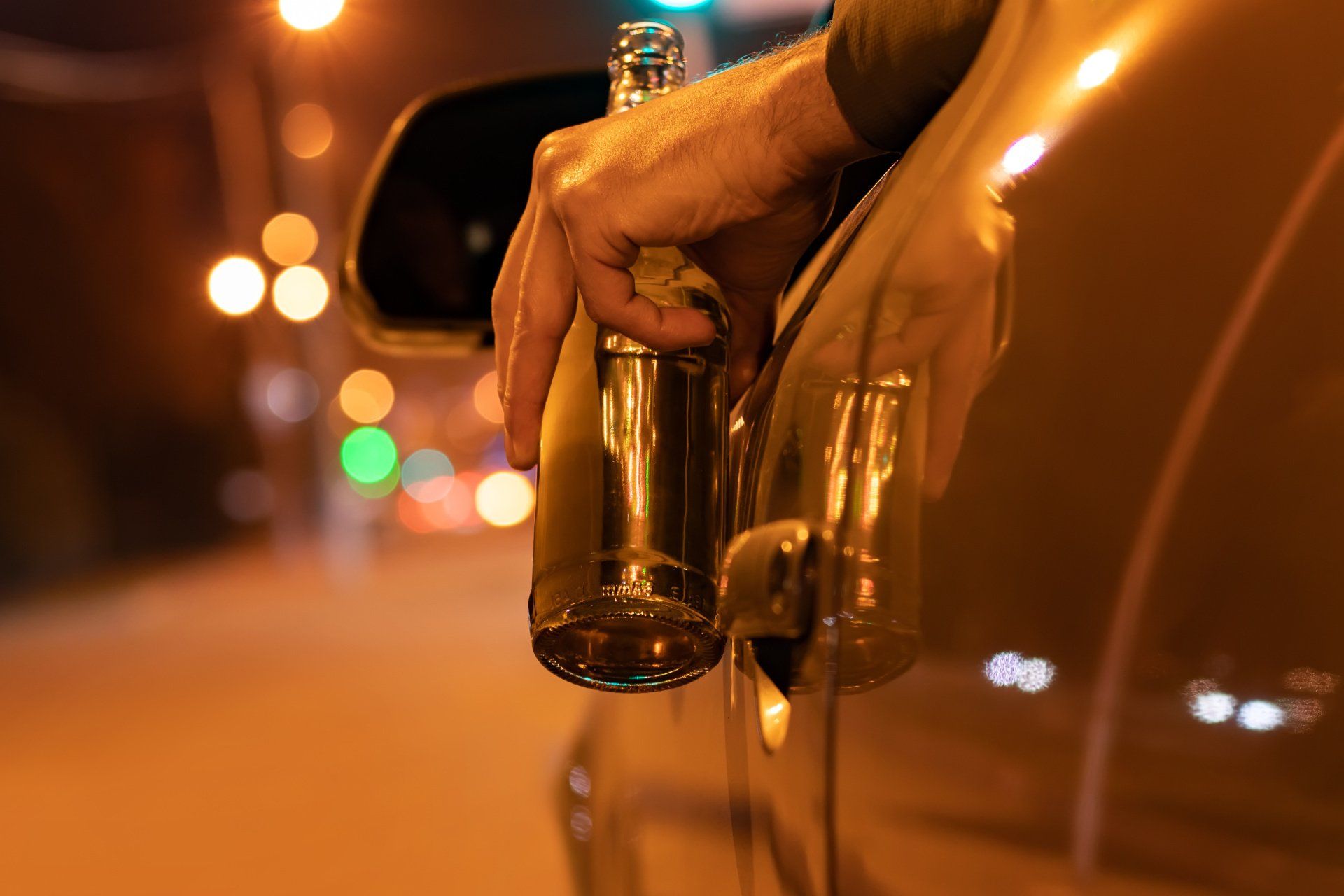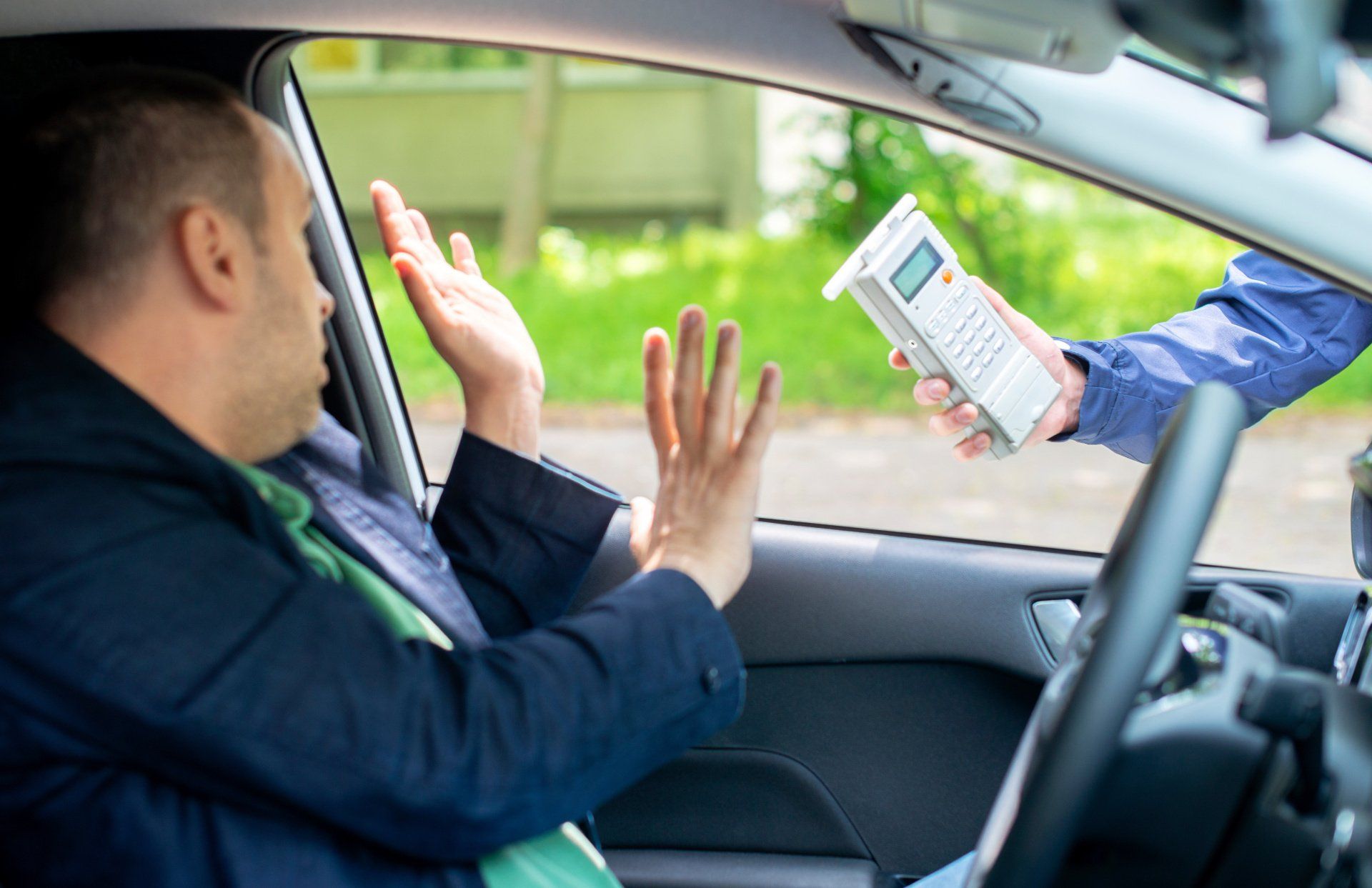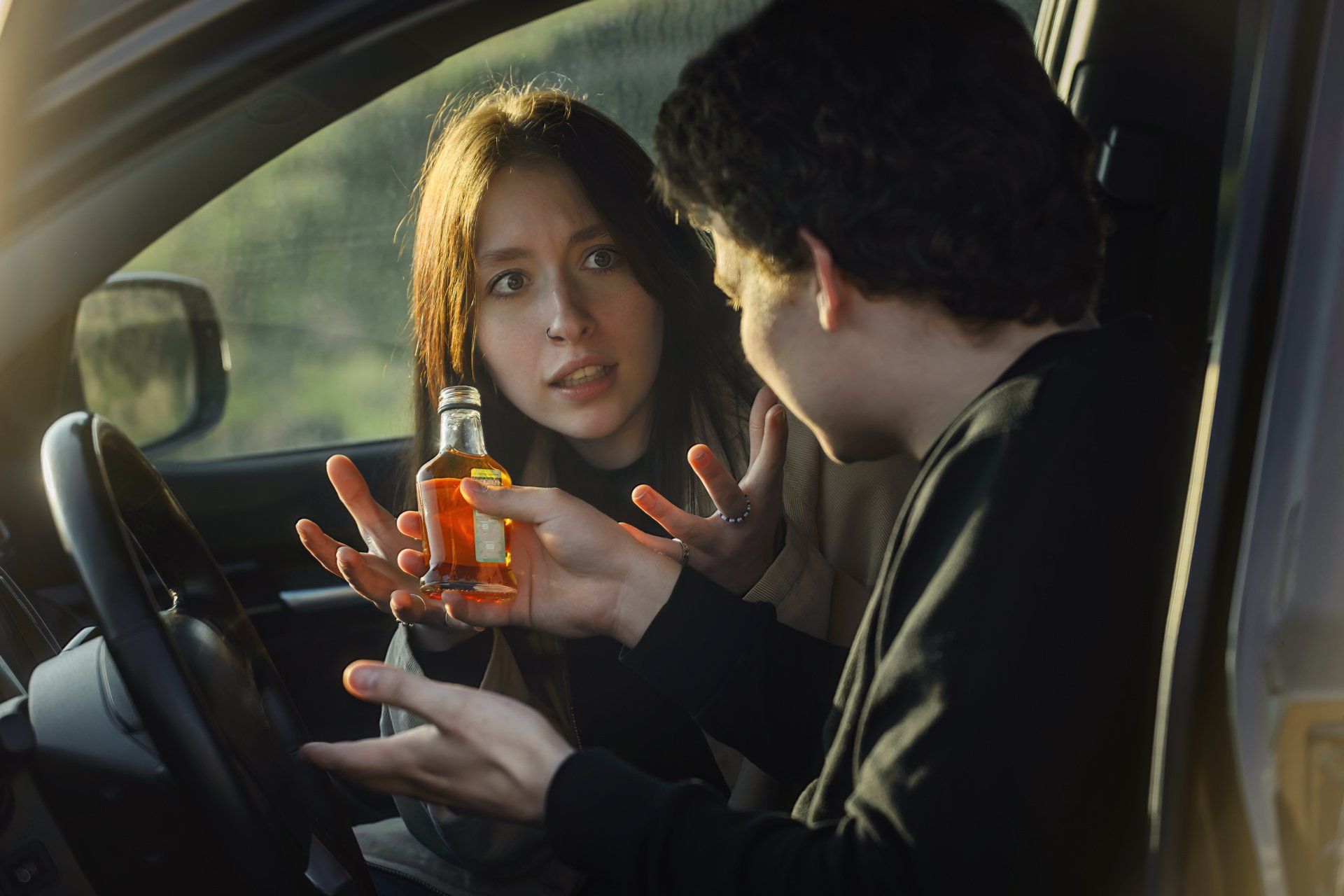Marijuana DUI
ARIZONA CRIMINAL DEFENSE ATTORNEY FOR MARIJUANA DUIs
Defense Attorney for Marijuana DUIs in Arizona
In Arizona, you are prohibited from driving with any amount of drugs in your system. Marijuana has presented some unique challenges because of how its legal status has changed over the past 10 years. The Arizona Medical Marijuana Act (AMMA) has allowed patients who are registered with the state to possess and use marijuana since 2010.
The passage of Proposition 207 in November of 2020 means that adults can possess and use marijuana recreationally. Despite these laws, Arizona prohibits driving when people are impaired by marijuana. Regardless of your level of impairment, the state prohibits the operation of a motorized vehicle when you have active marijuana in your body unless an exception under the AMMA applies.
Marijuana DUI attorney Michael Alarid is a board certified DUI defense lawyer through the National College of DUI Defense and is one of the only five attorneys in Arizona who has passed the certification exam. We offer effective representation to people who are charged with driving under the influence of marijuana and other drugs.
A conviction for a marijuana DUI can lead to serious repercussions, including criminal penalties and collateral consequences on your life. Retaining an experienced lawyer at our firm can help you to increase the chance of securing a more favorable resolution to the charges against you.
How Misdemeanor Marijuana DUI in Arizona Is Charged
When people are charged with a DUI for marijuana, their complaints will normally include two charges: a charge of impairment to the slightest degree and a charge of driving with any amount of drug in their systems. Both of these charges are found in ARS 28-1381.
Under ARS 28-1381(A)(1), it is illegal to drive or be in actual physical control of a vehicle while you are impaired by alcohol or drugs. This is a zero-tolerance law that prohibits driving while you are impaired by any amount of drugs or alcohol, even if you have a valid prescription.
Under ARS 28-1381(A)(3), it is illegal to drive when you have any active marijuana in your blood as defined under ARS 13-3401. The prosecutor will only be required to prove that the marijuana in your system was active while you were driving to secure a conviction.
Medical Marijuana Registration as an Affirmative Defense
The Arizona Medical Marijuana Act is found at ARS 36-2801 et seq. Under ARS 36-2802(D), having a medical marijuana card does not allow you to drive while you are under the influence of marijuana. However, this statute provides an exception for registered patients who drive with concentrations of marijuana or its metabolites that are insufficient to cause them to be impaired.
In the case of Dobson v. McClennen, 238 Ariz. 389 (2015), the Arizona Supreme Court held that this exception does not allow someone to defend against an impairment charge under ARS 28-1381(A)(1). However, the exception can be asserted as an affirmative defense by qualifying registered patients who are charged with a per se offense under ARS 28-1381(A)(3). This means that if you can present sufficient evidence that the amount of marijuana or its metabolites in your system did not impair you, you can win dismissal of a per se offense. Your attorney might call an expert witness to testify about the effects of the quantity of marijuana found in your blood to demonstrate that it was insufficient to impair you if you have a valid medical marijuana card.
Marijuana Metabolites in Your Body
Metabolism is the process through which your body breaks down and processes substances you ingest, including food, drinks, and drugs. Many steps are involved in the process of breaking down substances.
Under Arizona law, it is illegal to drive with THC in your body. This is the psychoactive component of marijuana. When your liver metabolizes THC, you will also have metabolites in your blood. You can be prosecuted for impairing metabolites found in your blood. However, some metabolites are inactive and are not impairing.
When THC is metabolized, it is converted into metabolites. Active THC metabolites can cause you to be impaired. The impairing THC metabolite is 11-Hydroxy-THC. You cannot drive with 11-Hydroxy-THC in your blood. This metabolite is further metabolized into 9-Carboxy-THC, which is not impairing. If you only have 9-Carboxy-THC in your blood, your attorney can get the prosecutor to dismiss your case.
If your blood sample only contains inactive metabolites, your attorney may call an expert witness to explain the difference between active and inactive metabolites to help to defend against both an impairment charge under ARS 28-1381(A)(1) and a per se charge under ARS 28-1381(A)(3).
In the case of State ex rel. Montgomery v. Harris (Shilgevorkyan), 234 Ariz. 343 (2014), where marijuana DUI defense lawyer Michael Alarid argued before the Arizona Supreme Court, the Arizona Supreme Court held that people who only have the presence of 9-Carboxy-THC in their bloodstreams could not be prosecuted for per se DUI drugs under ARS 28-1381(A)(3). This case changed the law in Arizona and resulted in numerous convictions being overturned.
Roadside DUI Checkpoints for Marijuana Impairment
When people are stopped for suspected DUIs, the officers may ask them to perform standardized field sobriety tests when alcohol is suspected. If an officer suspects that you might be impaired by marijuana, he or she might call a drug recognition expert to the scene. Without the testimony of drug recognition experts, an officer's testimony about his or her observations that led them to believe you were impaired would be subjective. Unlike tests for alcohol, there is not a specific amount of marijuana that is impairing on a marijuana DUI test.
Drug recognition experts (DREs) are officers who have gone through training in drug recognition. This course allows them to gain certification that supposedly allows them to recognize impairment from drug use. DREs are called to the scene when an officer believes that someone is impaired by drugs. They then conduct their own tests to determine impairment.
While DREs claim that their tests demonstrate impairment, no outside scientific studies have been completed to validate these programs. The only studies and tests in support of DREs have been completed by drug recognition programs themselves.
Issues with DREs Testifying in Marijuana Cases
Prosecutors often call DREs to testify in marijuana DUI cases. These officers rarely admit that they made mistakes, even when a blood test shows that there isn't any active marijuana in the driver's blood. DREs nearly always testify that the defendant had recently smoked marijuana and was impaired.
If a driver tells an officer that he or she has a medical marijuana card, the DRE will look for anything to claim that the driver recently ingested marijuana. DREs rarely admit that they were wrong in their investigations.
Marijuana DUI attorney Michael Alarid knows the approaches DREs take and how to effectively cross-examine them to demonstrate problems in how they conducted their investigations.
What are the Penalties for a Marijuana DUI Conviction?
While you might be convicted of both an impairment DUI offense and a per se offense after a marijuana DUI test, the court will only impose one sentence.
For a first marijuana DUI conviction, you can face the following penalties:
- From up 10 days in jail (with 9 suspended) to 180 days in jail
- Probation for up to five years
- Ignition interlock system for six to 12 months at the court's discretion
- Alcohol and drug screening and compliance with any treatment recommendations
- Community service
- Traffic survival school
- SR-22 insurance for up to three years
- Around $2,000 total in fees, fines, and assessments
- Suspension of your driving privileges for 90 days
Nine of the 10 days of jail can be suspended if you complete an alcohol and drug assessment and take any recommended classes. During the suspension of your driver's license, you will not be able to drive at all during the initial 30 days.
As long as you have no prior DUIs, you can apply for a restricted license to drive to work or school during the final 60 days. While ignition interlock devices are not required for a DUI that only involves drugs, judges have the discretion to order them.
If the court orders you to install an ignition interlock device, you might have to have it for only six months, as long as you never submit a positive alcohol reading and comply with the maintenance requirements.
If you have a prior DUI conviction within the past seven years, you will face the following penalties for a second conviction:
- Jail from 90 days (of which 60 days may be suspended) to six months
- Around $5,000 total in fines, assessments, and fees
- 12-month suspension of your driver's license
- Ignition interlock device for 12 months at the court's discretion
- 30 hours of community service
- SR-22 insurance for up to three years
- Traffic Survival School
For the jail portion, you can serve as few as six days in jail, followed by 24 days of home confinement (if the court offers home detention) as long as you complete an alcohol and drug assessment and comply with any recommended classes. If you are placed on home confinement, you will have to wear an ankle monitor to continuously test for the presence of alcohol or blow into a device two times per day.
People in home confinement are allowed to go to work. However, home confinement is not available in Arizona Superior Court or Arizona Justice Court. If it is not available in your case, you will have to serve a minimum of 30 days in jail.
After the first 48 hours, however, you can participate in a work-release program. This allows you to leave the jail for 12 hours per day up to six days per week to go to your job.
You can apply for a restricted driver's license after completing an initial 45 days of no driving. If you are approved for a restricted license, you will have to agree to install an ignition interlock device on your vehicle and you will be limited to only driving to work, school, court hearings, and medical appointments.
Related Practice Areas
RECENT CASE RESULTS
GET A FREE CONSULTATION TODAY
Hiring an Experienced Marijuana Lawyer to Fight a DUI Drugs Charge
If you have been charged with a marijuana DUI based on impairment or a per se offense after a DUI drug blood test, you should retain an experienced defense lawyer to handle your case. Criminal defense lawyer Michael Alarid has extensive experience in marijuana DUI defense, even arguing and succeeding in a marijuana DUI case before the Arizona Supreme Court.
Just because you have been charged with a DUI does not automatically mean that you will be found guilty. Your lawyer can review the evidence in your case and help you determine the most appropriate defense strategies to take.




